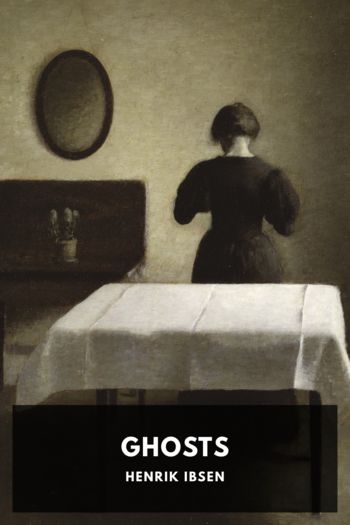Murderous, David Hickson [most read book in the world .TXT] 📗

- Author: David Hickson
Book online «Murderous, David Hickson [most read book in the world .TXT] 📗». Author David Hickson
“They protected his identity,” said Silindile. “You can see the clumsy handiwork of the Nationalist dinosaurs all over it.” She paused for a moment. None of us looked at the relic of the Nationalist era standing at the head of the table. “Trauma-induced schizophrenia,” she continued. “That was the diagnosis. They placed him in a psychiatric institute for observation, and that’s as far as I’ve managed to go.”
“Are you telling us that Piet van Rensburg has a nephew?” said Fehrson.
“I suppose so. The mother of the young boy who survived the murder of his family was Piet van Rensburg’s sister.”
“What became of him?” asked Andile.
“I cannot work it out. He was taken out of the psychiatric home, and his identity was changed again. He was placed in foster care. And then the trail goes cold. He could be anywhere.”
“Keep looking,” said Khanyi. “He sounds like someone we need to find.”
“And with some urgency,” agreed Andile. He turned to me. “Let’s get the ball rolling on those weapons, Freddy. Try and find this nephew before he attends any more church services.”
Silindile provided us each with copies of the press cuttings, and I read through my copy when I returned to the harbour warehouse that evening. The Ukuthula luxury lodge had been a simple farmhouse in which the family lived on a few thousand acres of land with a large flock of sheep. The father had inherited the farm from his own father and was known as a kind man who worked himself to the bone in the constant struggle to keep his animals alive in the near-drought conditions. He and his wife spent every Sunday morning in the church with their three well-behaved children. Shortly before the first democratic elections in the country, as the family sat down to their Saturday night dinner they were surprised by gunshots, which smashed the windows of their living room and showered them with glass. The front door of their remote farmhouse was where the killers gained entrance, but the exact sequence of what happened next was not known because the only survivor of that evening had not been able to tell the story. Child welfare services had stepped in to point out that forcing a ten year old to relive the trauma would achieve nothing because the killers had been wearing balaclavas and all the boy was likely to remember were the things he was looking at: his own family as they died, not the men holding the guns.
They found the father on his back in the entrance hall. The mother and two daughters made it to the kitchen before the killers caught up with them. Their bodies reached towards the back door as if they had been crawling to safety when they were gunned down.
The boy was found in the bathroom, alive, but so terrified that it was weeks before he could use his voice. He was ushered into a victim relocation plan that the outgoing Nationalist government had put in place to manage the increasing number of victims of political violence.
The ten-year-old boy had disappeared into a program of therapy and the creation of a new life. Silindile had added a few notes that described her efforts to trace the survivor, but he had disappeared. I wondered about Hendrik’s obscure origins, and whether it had been a coincidence that he had been ten years old when he moved in with his father. Was Piet his father? Or was he his uncle?
It rained later that evening, but I opened the doors of our warehouse and Robyn and I sat on the broken deckchairs. Robyn had slept most of the day. She looked drained and miserable. Her hair was pulled back, her skin was pale, and the expression in her dark eyes made me think she was leaning in to kiss me. Her ears were like an elf’s, pointy and delicate.
“The colonel called,” she said. “Told me we’re going ahead.”
“That’s right. They’ve agreed to allow the crates in without inspection.”
“They’ve given you that number Sandy called?”
“Not yet.”
I lit us each a cigarette. Robyn inhaled on hers and then allowed the smoke to drift as if she had stopped breathing.
“He won’t let me go,” she said. “The colonel. I told him I wanted out, but he said no. Even though I fucked up.”
“You know how he thinks,” I said. “It’s all of us or none of us.”
“Perhaps it should be none of us,” she said. The smoke drifted out of her mouth like she was a seductress in a 1940s movie. “The colonel said you had news about Hendrik. Something about him not being who we thought he was?”
“That game farm of theirs belonged to a sheep farmer,” I said, “who married Piet’s sister. The family was murdered, but one boy survived. He was ten years old.”
“You think the survivor is Hendrik?”
“He might be.”
“If Hendrik survived that kind of trauma,” said Robyn, “we should be careful of him. The playboy buffoon would have to be a big act.”
“That’s what worries the colonel. But perhaps the therapy worked, and he’s left his past behind.”
“It’s not that easy. You don’t get over the things that happen to you at that age.”
“I suppose not,” I said. Robyn would know. She had been sexually abused by her stepfather from the age of eleven until she finally spoke out at sixteen.
“The psychos squash the nightmares with their drugs,” said Robyn, “and plant the happy thoughts with their hypnosis and all that shit. But there are some things that can’t be fixed.”
The smoke hung in the air before her, as if the memories of her own trauma were holding her breath in.
“Guilt,” she said after a pause. “That’s what it is. Guilt. The guilt of having said yes. The guilt of ‘maybe it’s something I did?’ Or just who I am. Asking yourself, ‘was it me?’ Did I cause an





Comments (0)